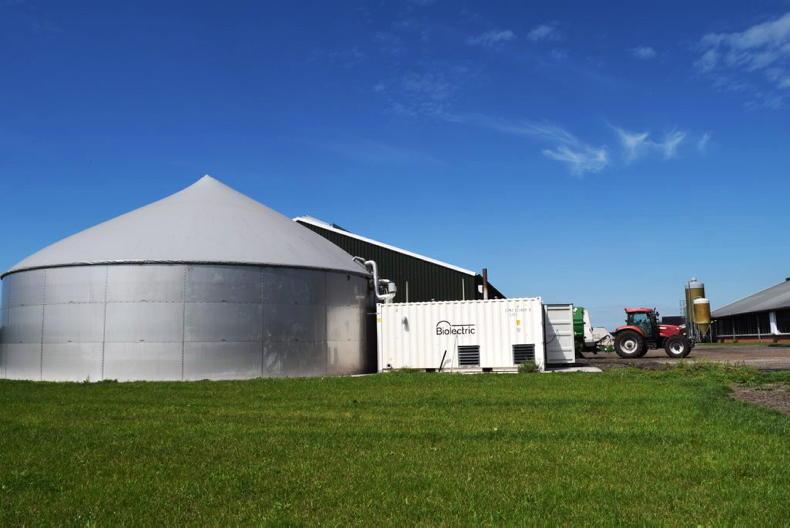Belgium-based Biolectric promised to safeguard farmers’ “license to farm” on the environmental-front, while allowing them to cut costs with their offering of farm-scale anaerobic digesters (AD), at Thursday’s Irish Bioenergy Association conference.
Biolectric manufactures farm-scale anaerobic digestion systems, with add-on combined heat and electricity generation options, that can be used to supply the farm or grid with renewable electricity.
The company’s operations manager in the UK and Ireland, Fayolle Joseph said that the systems they offer can leave farmers better-placed to comply with environmental regulations around ammonia emissions, reducing soil nutrient surpluses and cutting greenhouse emissions.
“We can reduce carbon footprint at farm-level, produce new revenue streams for farmers, enhance nutrient cycling, reduce imported fertiliser use and, at the same time, create energy independence by having electricity production on-farm,” he commented.
Joseph stated that work undertaken by Biolectric with the manufacturer of methane-reducing feed additive Bovaer, found that feeding the additive does not reduce the biomethane potential of slurry.
Deploying anaerobic digestion in combination with feed additives could pose a solution to the farm sector meeting its emissions reduction targets, he said, referencing research from Wagenigen University and Ghent University.
“Bovaer is saying it can reduce enteric emissions by 30% and we are nearly on par in terms of emissions reduction.
“When you couple the two systems, you can reduce by nearly 50% the emissions on the farm. From a farmer-level, retailer-level or government-level, they are great numbers to showcase if they want to meet carbon targets by 2050.”
The conference heard that the emissions benefits of anaerobic digestion come from a reduction in emissions from slurry, a displacement of natural gas with biomethane and a cut in demand for chemical fertiliser by using digestate.
